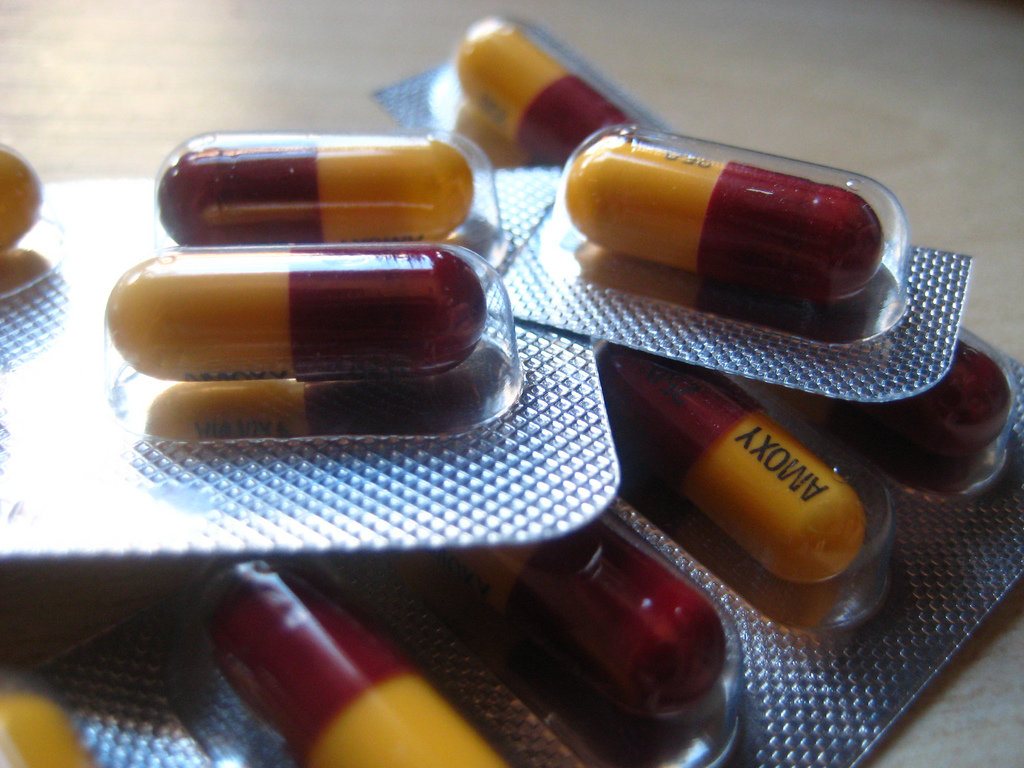A Post-Antibiotic Era: Antibiotics and Food
Since the 1950s, the agricultural industry has used antibiotics as a precautionary measure to prevent widespread infection in the crowded, restrictive settings of a food animal farm. Antibiotics are readily available, low cost, and promote profitable weight gain in food animals compared to other capable forms. Approximately 80% of all antibiotics sold in the United States can be traced back to agricultural usage and many overlap with the antibiotics used to treat human illnesses. The World Health Organization classified several growth-promoting antibiotics utilized by food corporations as critically important to human medicine. The FDA does not strictly regulate the use of antibiotics for agricultural purposes.
So what’s the big fuss? The issue is a rising global health threat – a post-antibiotic era. Antibiotic-resistance occurs when humans consistently ingest copious amounts of antibiotics, to the point where antibiotics are no longer effective in treating common illnesses or injuries. According to the Federal Interagency Task Force for Antimicrobial Resistance, antibiotic-resistance threatens to reverse medical advances over the last seventy years. The Center for Disease Control has done extensive work to inform doctors and patients on the dangers of over consuming antibiotics, but little progress has been made in the agricultural industry.
A collaborative report, Chain Reaction II, is sounding the alarm and working to increase standards within the agricultural industry. The report informs the American public on the antibiotic policies and practices of the top 25 largest US food chains. This second annual report, co-authored by six non-profits, grades restaurants on their current usage of antibiotics, as well as their future endeavors to eliminate antibiotics for agricultural purposes. While nine food chains would not respond to the report, a few made tremendous headway in reducing the amount of antibiotics used in animal feed, including Subway and McDonalds, while Chipotle and Panera continue to lead the way in offering non-antibiotic meat options. The US Centers for Disease Control and Prevention and the World Health Organization are similarly pushing for change in this department.
As antibiotic-resistance becomes an up-and-coming global health threat, is it permissible for the FDA to not interfere with antibiotic usage in the agricultural industry? Permitting the use of antibiotics allows the industry to lower policy standards when it comes to the diet and living conditions of livestock, because of the livestock’s enabled ability, due to the antibiotics, to withstand the common infection. While the FDA has not made any regulations on antibiotics in the restaurant industry, they recently prohibited the use of some antibacterial agents in soap due to similar concerns. The antibacterial agents, triclosan and triclocarbon, have been banned because they do not prevent the spread of germs any more than regular soap and potentially cause long term drug-resistance. Corporations now have a year to rid soaps of triclosan and triclocarbon, but several other anti-bacterial agents are being reviewed. Therefore, one would presume that since the antibiotics used in agriculture increase the chances of drug-resistance just as anti-bacterial agents in soap do, the FDA would similarly regulate the agricultural industry.
A conflict arises as antibiotics increase the value of meat, while anti-bacterials have limited impact on the effectiveness of soap. First, without antibiotics, food animals would need substantially higher quality living conditions and feed to parallel the protection of the antibiotic. Secondly, the antibiotics promote weight gain, thus the industry would have to increase the amount of animals necessary to produce the same amount of meat. Lastly, if the industry invested in an alternative to antibiotics, this alternative may be costly and difficult to access. Chipotle, for example, makes a significant effort in providing the healthiest ingredients, including responsibly raised meats. Due to their sharpened focus on food quality, Chipotle is ranked one of the most expensive fast food chains. So without antibiotics, the companies may need to increase prices in order to make a similar profit. The antibiotics have a true purpose in the restaurant industry, unlike the anti-bacterials in soap, which may influence the FDA’s involvement in the matter.
As the FDA continues to dismiss the global health risk of drug-resistance, is it the restaurant industry’s obligation to their customers to supply antibiotic-free products? A majority of the restaurant and agricultural industry argue that the use of antibiotics on the farm stays on the farm. The industry believes the use of antibiotics affects the bacteria’s on the farm, but does not translate into the kitchen or the environment. They proclaim there is no direct link between the use of antibiotics in food animals and antibiotic-resistance in humans.
On the contrary, studies by the CDC over the last twenty years have shown there is a correlation between antibiotics used for food animals and antibiotic-resistance in humans. As antibiotics are used on food animals, most of the bacteria in and around the animal is killed, but not all bacteria. The leftover bacteria proliferates and remains unaffected by the antibiotic creating a superbug. The superbugs are easily spread through uncooked meat and poultry, workers, and farm runoff to affect the kitchen and the environment. The agricultural industry continues to deny these studies for having insufficient information for the sake of short-term profit at the expense of customers long-term health.
Each year, 2 million United States citizens develop infections untreatable by antibiotics with about 23,000 dying as a direct result. The overuse of antibiotics in the agricultural industry will continue to spike these numbers as drug-resistance becomes more prevalent. The pressure continues to intensify on the agricultural industry and the FDA to step up by making tough decisions and major changes with the use of antibiotics for the sake of public health.





